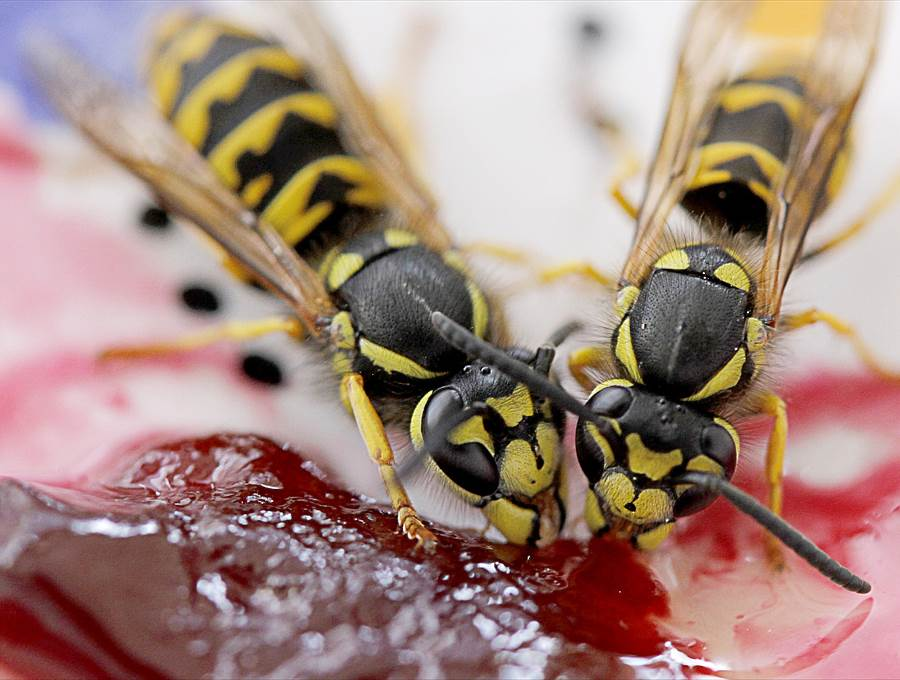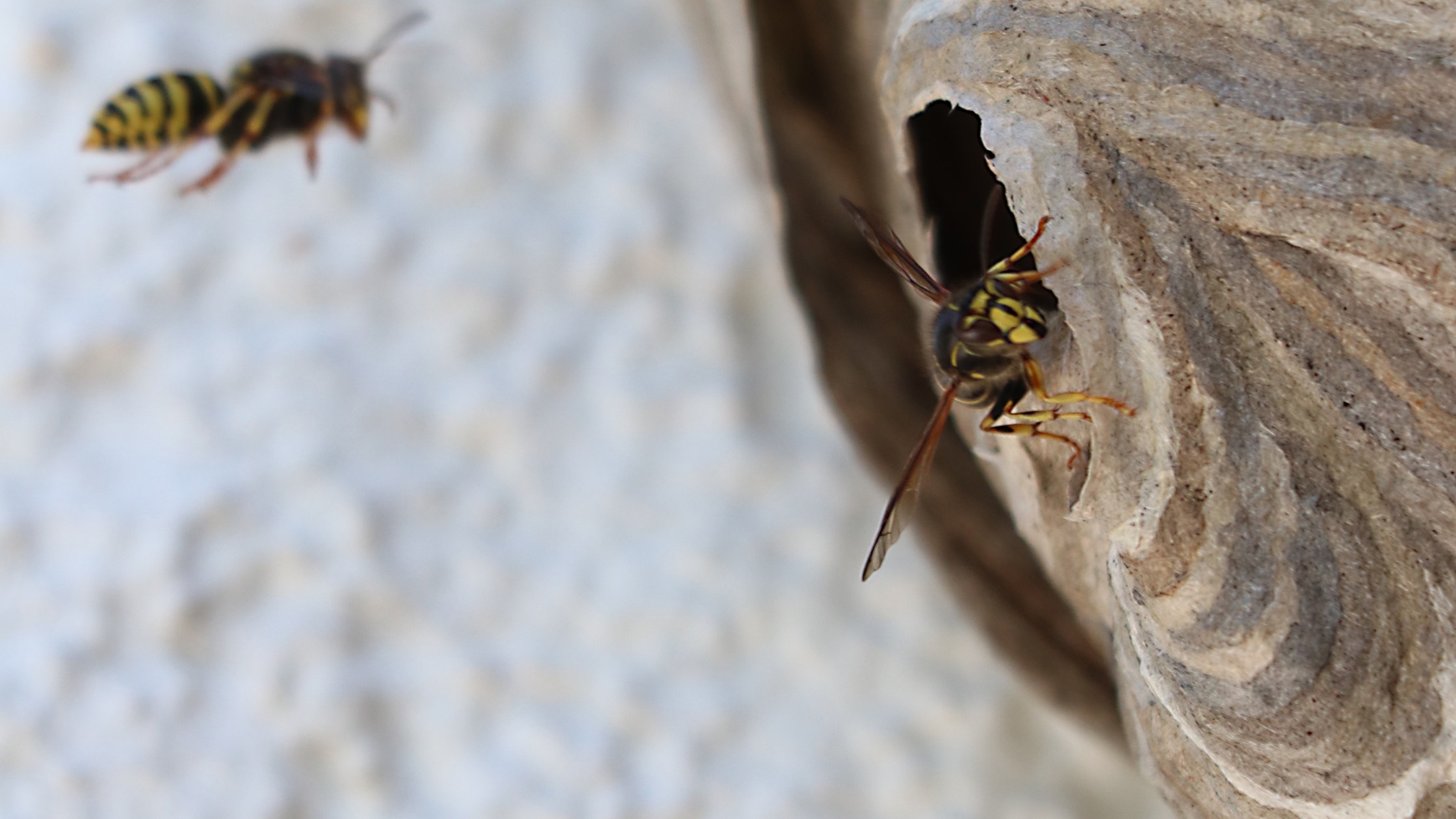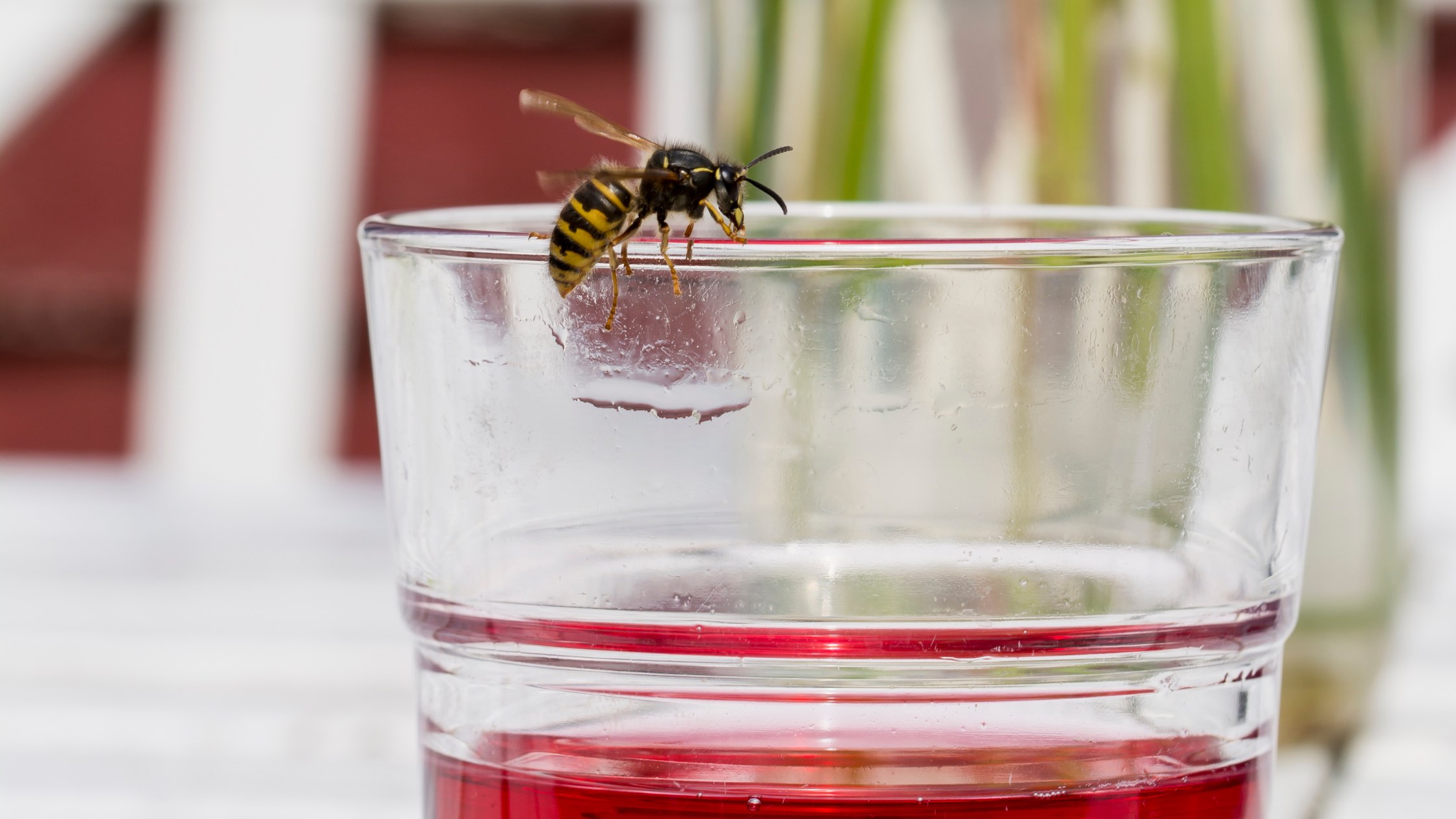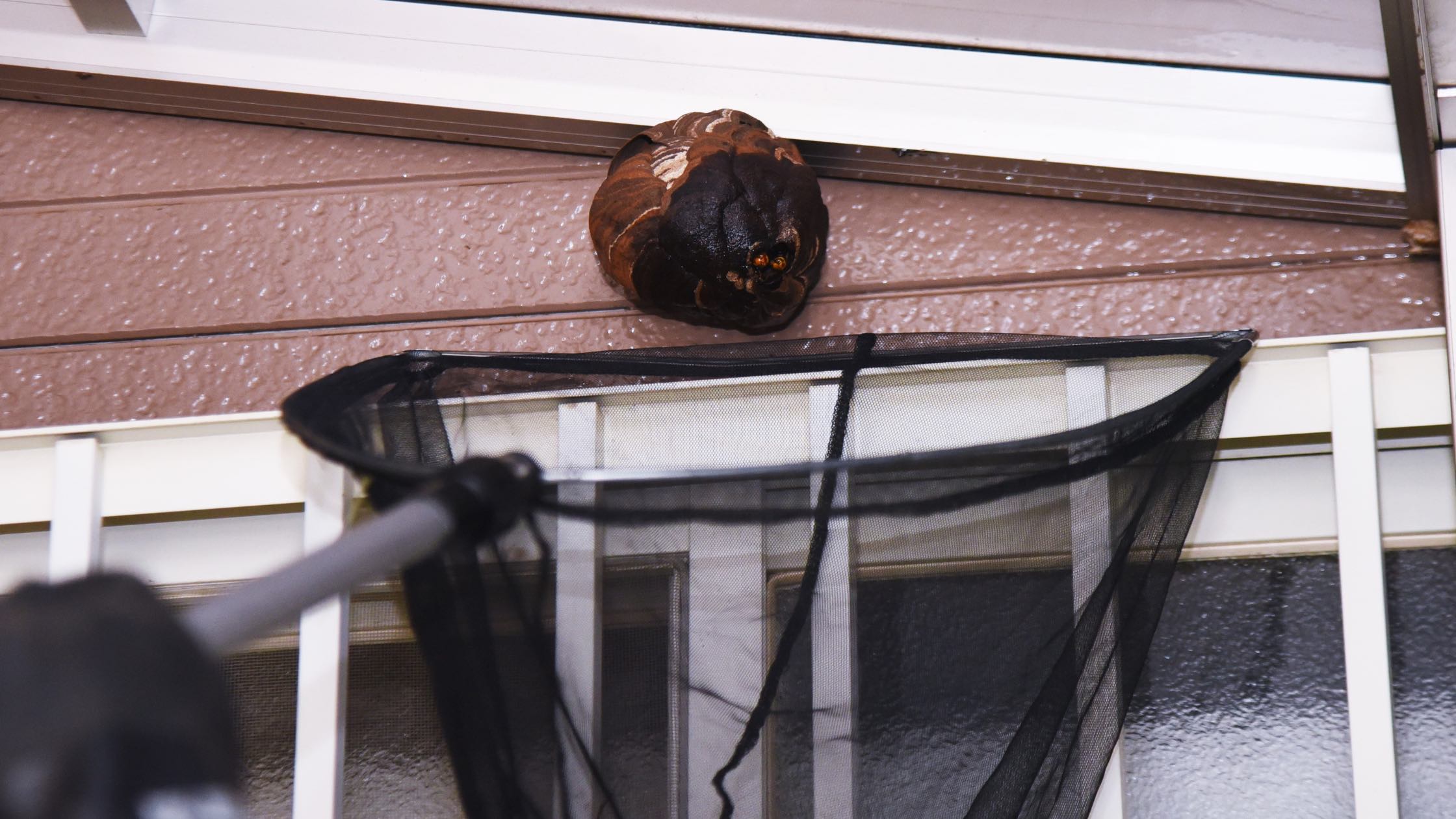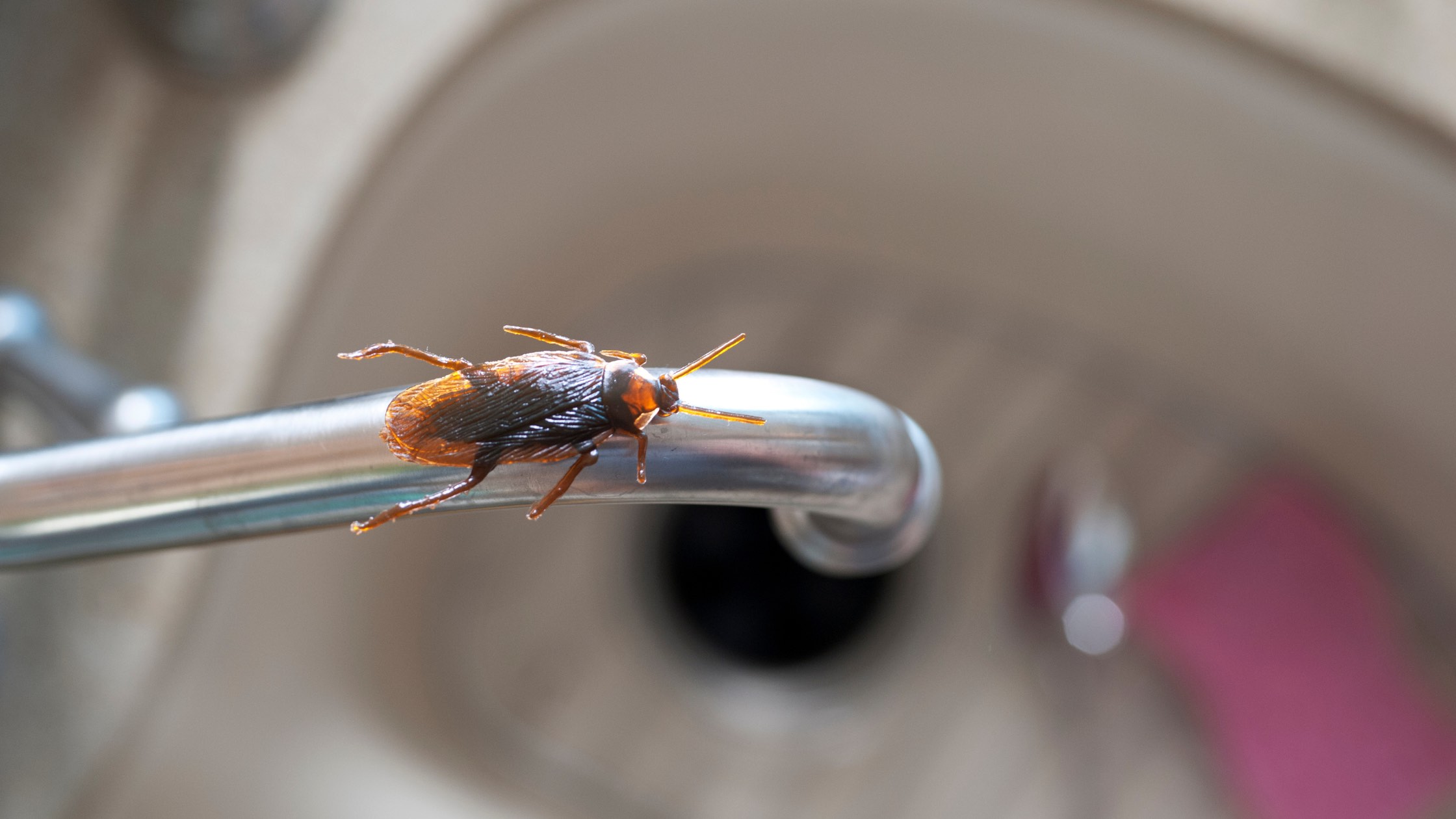Finally, summertime is back! Long days, warm weather, and of course wasps flying around. On the balcony, outside in the garden, or sometimes in the apartment, wasps are annoying. However, wasps are not only there to annoy us, humans.
Wasps are very efficient eaters of other insects. Observations have shown that a colony can bring in over 200 flies per hour into their nest and a colony of hornets captures around 500 grams of mosquitoes and other insects per day! Wasps are therefore to be regarded as an important part of the ecosystem.
Under certain circumstances, however, wasps can be very annoying and sometimes dangerous (e.g. for children or allergy sufferers). In these cases, the wasps can be controlled with an insecticide. However, this should be done by a specialist with a federal license.
The most important questions about wasp control.
In spring and early summer, wasps need a lot of protein to be able to feed their larvae. This is why they are particularly attracted to barbecues, as meat is a very interesting source of proteins for these insects.
In the fall, the wasps reach adulthood and must worry about their own survival. They then need sugar above all and are therefore fond of our sweet dishes, soft drinks or fruit.
It is therefore advisable to remain attentive to wasps during your barbecues and when you consume sugary drinks or fruits in the open air. Watch your food carefully before ingesting it to avoid swallowing a wasp on the way. A sting in the mouth or throat can be life-threatening!
Each individual wasp species look for different nesting sites. The German wasp (which is the typical summer pest) likes to nest in dark or semi-dark places. Their nests can often be found in cavities such as roller shutter boxes, attics, or under bricks, but they also use empty burrows for mice and other rodents as nesting sites. Other wasp species build their nests freely hanging in nature, on trees and bushes. A queen starts building the nest in spring since only the queens survive the cold winter. There are particularly many and large colonies of wasps in years when there is a dry and warm climate in spring. Such conditions can lead to overpopulation, which makes the wasps appear particularly troublesome.
When wasp nests are in close proximity to people, the chance of wasp stings increases drastically. In these cases, a disinsection definitely makes sense. An intervention is particularly recommended for children or allergy sufferers.
When wasps are around people, it doesn't necessarily result in conflict. With the right behavior, dealing with wasps without conflict is quite possible:
Don't disturb the nests: Wasps generally become suspicious when a stranger approaches the nest. If the nest is subsequently disturbed, the wasps become aggressive and attack the disturber.
Avoid agitating movements: The wasps become nervous and feel threatened by hectic movements or even blows in the direction of the insects. This increases the chance of catching a stab.
Do not breathe on the insects: the wasps interpret the exhaled CO2 as a symbol of enemies and they go on the alert. For example, if a wasp settles on your arm, don't try to blow it away. As a result, they only make the insect aggressive - the chance of a sting increases.
Do not stand in the wasps' flight path: If the wasps are blocked from access to their nest or food source, the animals feel threatened. Therefore, avoid crossing the flight paths of wasps.
However, when wasps are in close proximity to people, the chance of wasp stings increases dramatically. In these cases, a disinsectization definitely makes sense. An intervention is particularly recommended for children or allergy sufferers.


